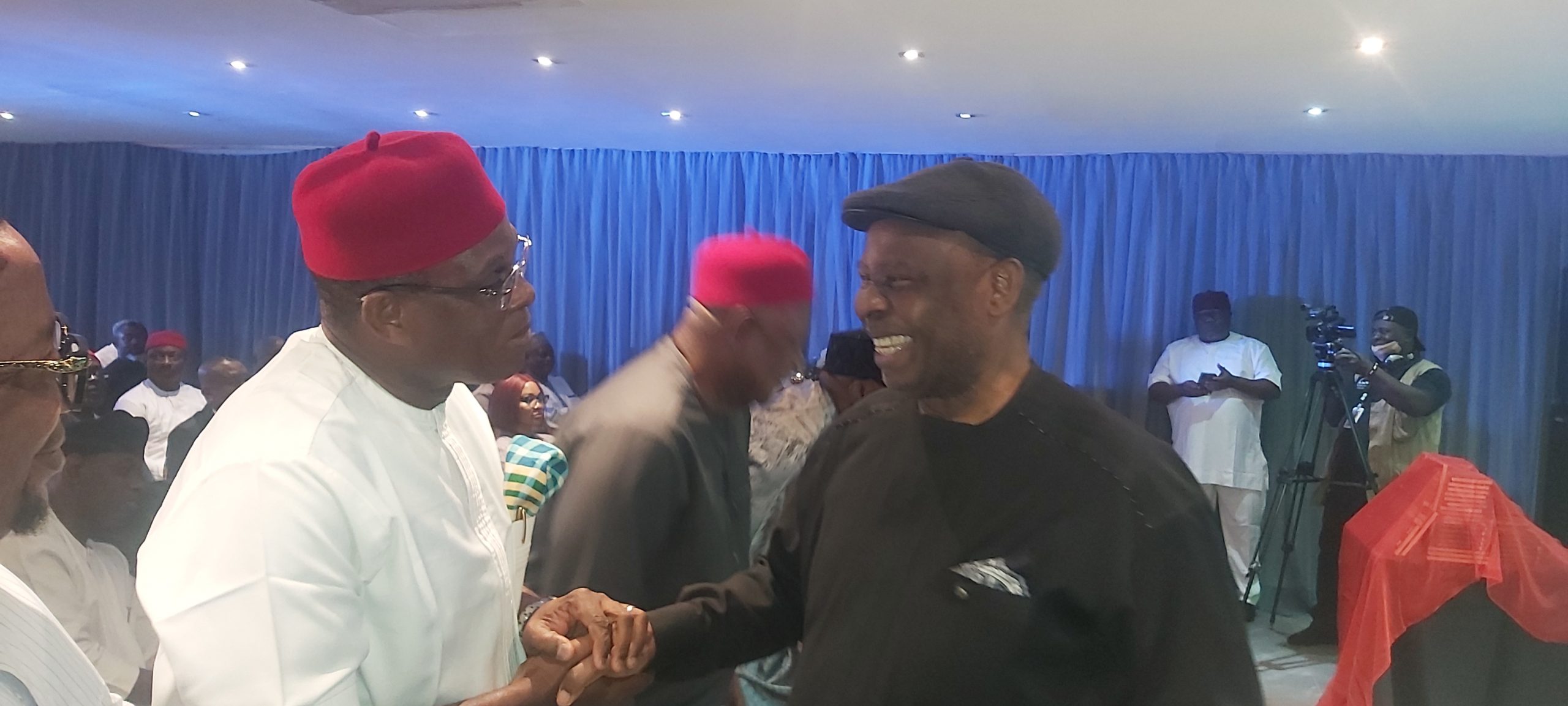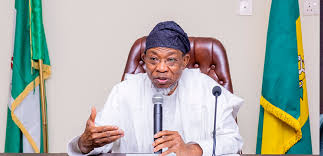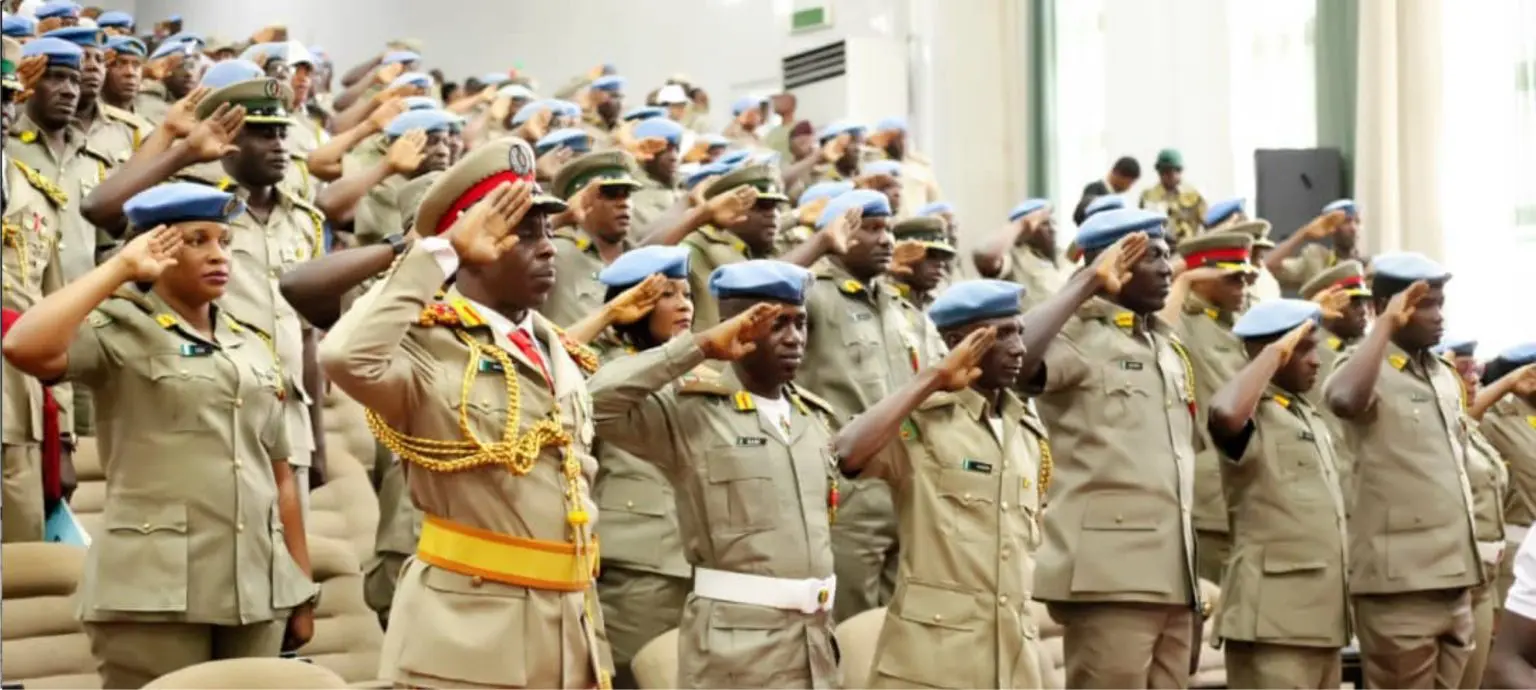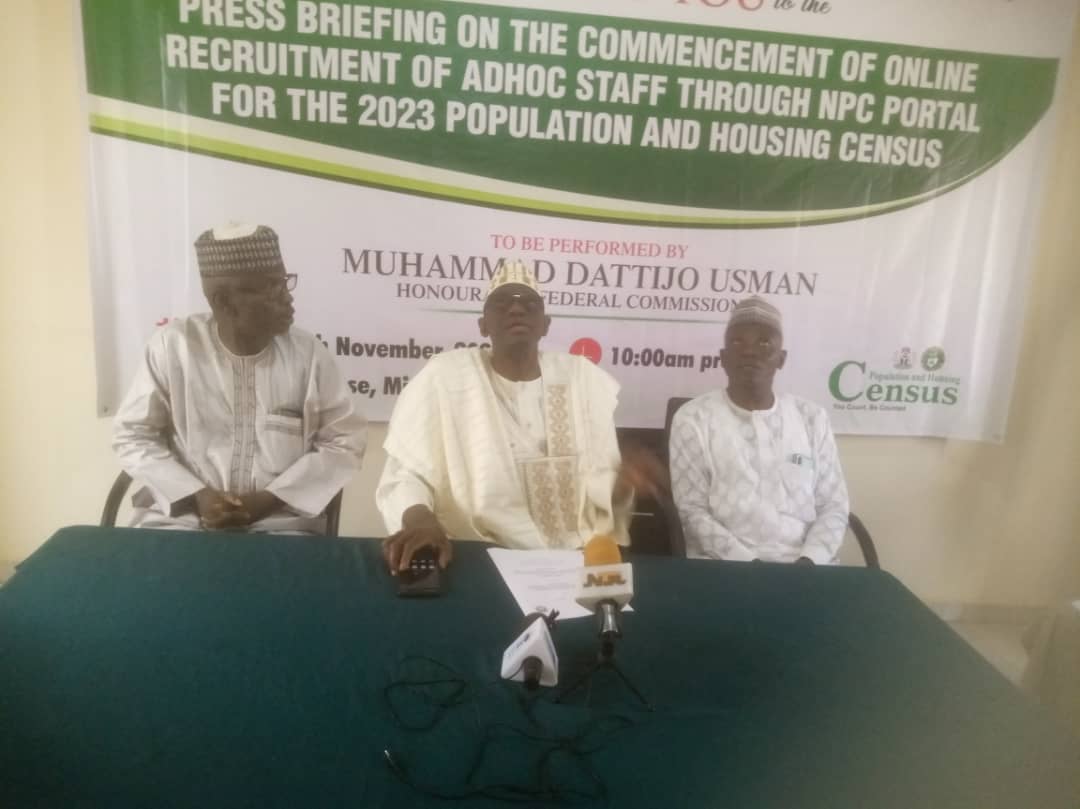***Okonkwo advocates equitable, management of diversities as best model for restructuring
The National Youth Service Corps (NYSC) scheme and the Unity Colleges which have been nation building institutions should be rekindled for Nigeria to achieve greater unity in diversity, former health Minister during the President Olusegun Obasanjo’s administration, Professor ABC Nwosu has advocated
Speaking at the weekend during the presentation of a book ‘Making Nigeria Work’ -Pathways to greatness’ authored by Professor Obiora Okonkwo, Nwosu advocated for the NYSC which used to be one year Service to the fatherland to be upgraded to two years for graduates.


“Why not strengthen Federal Government colleges. Why don’t we strengthen the greatest nation building institution born after the Civil War by General(rtd) Yakubu Gowon when he set up the National Youth Service Corps (NYSC).
“Why don’t we make it two years, the first six months, you have survival training that includes military training and 18 months building them into an army that will bring out of school children through. These are just my thoughts.”
According to him since 1960 Nigeria has been trying how to become a nation
“We need to be unified. The Federal Government colleges were nation building institutions. I am not one of those who say some entered with 3 while some with 33. It doesn’t matter. That is where all the ethnic groups meet and they will be taught by the same teachers, let us go back to that doctrine. They will take the same examination.”

On the restructuring of Nigeria he aligned with the author of the book Professor Obiora Okonkwo who referred to restructuring as the proper management of the Nigerian diversities.
Nwosu who wrote the forward of the book extolled the virtue’s of Okonkwo, as a rare breed that has successfully combined entrepreneurship, intellectualism and politics for the good of Nigeria.
He commended the author of the book for turning a very difficult subject of restructuring on its head that made me understood it better.
Reminiscing his days in the secondary school, at Government college Afikpo when they matched to bring down the flag he said “We had high hopes for Nigeria but today we have mismanaged our diversity. Nigeria is not a conquered territory, Nigeria is a negotiated territory.
“All the people sat at conference, negotiated our coexistence. Independence constitution was gazetted in 1959 by the British and they had constitution of the Federal Republic followed by the constitution of Northern Nigeria, western Nigeria and Eastern Nigeria.
When you talk about restructuring and somebody said they want us to go back to regions that is very pedestrian thinking and I don’t believe in pedestrianism.
He said no part of Nigeria is subnational to others as they are all equal.
“So Professor Okonkwo has put it in the proper perspectives, let us manage all diversities and stop talking of the lower ones, I am talking of The Birom, I am talking of the Ogoni.
“Each one was created to be in Nigeria and have an equal right in Nigeria. There is no senior or junior Nigerian and there will never be.
“Any people that think they can succeed in making others senior and junior Nigerians is going to have trouble and his children he thinks he is protecting one day a child will arise from those he thinks are junior Nigerians and they will be in trouble so that chapter
Nwosu recalled the leadership qualities of selflessness of the first premiere of Eastern Nigeria Micheal Iheonukara Okpara who gave out choicest lands at GRA but gave none to himself.
“There cannot be a Premier like him. He said he tried to tell Obiora when he contested to be Governor of Anambra State.
“He shared land in GRA Enugu he did not take any. Meanwhile Eastern region included Portharcourt he didn’t take any, and when he lived in Iloyi he did not take it. The only property he borrowed £20, 000 to build he gave to Biafra and that is the Biafra Bunka but what happened?
“The people he served contributed money and built a beautiful house where he was buried and some of us who benefited from his selfless service made sure we were there at his funeral.
“He was a Medical doctor. I don’t know why medical doctors are taking to governance but the record is that when they go into governance they do well. So using M.I Okpara as a model was very good for me.
“For me anybody who aspires to be like M.I Okpara is on the right track for governance and for Obiora to have figured him as a model was okay.
He also recalled the selfless leadership style of Senator Oluso Saraki (Oloye) “I am not sure his children knows about his wealth because his wealth was for the people and he used if for the people.”
The author of the book prof.Obiora Okonkwo advocated equitable and fair management of the nation’s diversities as best model to restructure Nigeria.
Okonkwo, who is a Professor of Business at the University of Abuja said this in Abuja, at the launch and public presentation of his book ‘”Making Nigeria Work ,Pathways to Greatness.”
The book, with 15 chapters, brought fresh insights and incisive reasoning into nagging issues such as, how Nigeria’s diverse ethnic groups could be welded in to a truly united and peaceful nation.
Discussion on chapter one of the book centered on Value of Diversity: Restructuring to Save Nigeria,while chapter two discussed the Quest for a New Nigeria,the late Michael Okpara model.
Chapter eight focused on Reawakening the Age- long Norms and Values of the people,while chapter 12 highlights the activities of media on national development.
Okonkwo, who also used the occasion to mark his birthday said a restructured system would make Nigerians focus more on what happens in their states.
He said the people would hold the governor’s and state lawmakers more accountable to them, than it was currently focusing attention on accountability to the federal government.
This, he said would spur collaboration among the states in pursuance of economic development and integration.
“For example, nothing stops the states in the south -East from collaborating to build railways or monorails, to connect all state capitals in the region and boost economic activities that will drive development of the region.
“Such collaboration could also extend to the south-South region for mutual benefits,states in other regions could also collaborate to pursue development that are of mutual benefit to them.
“In doing this, states are are now forced to look at their diversity to get , integrated backwards and make use of the best, because regions will be in development competition.
“This is the sort of thing that restructuring will achieve ,it is not already happening because our current system of government enthrones a leadership recruitment system that does not allow for the best from our diversity,” he said in the book.
He said the 262 page book was his gift, to the educational institutions, gift to intellectual team, adding that the longer the nation waits to restructure, the deeper the wound and the hurt it experiences.
“When we talk of true federalism,it dose not mean taken what does not belong to anybody,it means people having what they should have and doing what they should do .
“The center has taken so much, the center still remains, active, with its own dedicated area of activities.
“In true federalism, you have powers in different states, doing also what they ought to do given by the constitution.
“This was a negotiated constitution before independence, it helped us, it brought about the fastest development, we have ever seen in this country.
“It will bring an end to a lot of issues, I hope the argument and opinion I have in the book will help people to know that this is not intended to hurt any body or deprive any body, but is to make us happier in this one entity Nigeria, where there will be equity, justice and fairness.”
High point of the occasion was unveiling and launch of the book by the Chairman of the occasion, Dr Abubakar Saraki, and the Special Guest of Honour, Former Secretary to Government of the Federation Sen.Anyim Pius Ayim.
Others present at the event are the Chief Executive Officer of Air Peace, Mr Allen Onyema, Sen .Uche Ekwunife, captains of industry, among other dignitaries.




